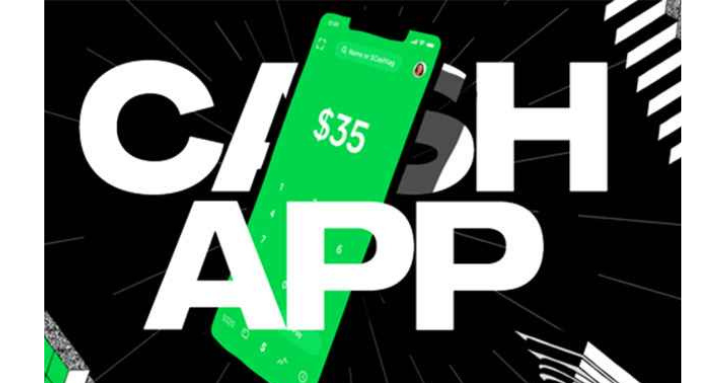Cash App vs Traditional Banking: Pros and Cons
Digital tools like Cash App are changing the way we think about money. Traditional banks, with their physical branches and established systems, now share the stage with these innovative financial apps. In comparing Cash App vs Traditional Banking, it’s important to consider convenience, fees, services offered, and accessibility to understand how they stack up against each other. Sign up with Cash App referral code to unlock exclusive benefits. Sign up with Cash App referral code to unlock exclusive benefits!
Convenience
Cash App has redefined convenience in financial transactions. With just a few taps on your smartphone, you can send money to a friend, pay for your coffee, or even invest in stocks. The app caters to a fast-paced lifestyle where users expect immediate results. Unlike physical bank branches that operate during business hours, Cash App is available around the clock. There’s no need to visit a bank teller or wait in line; your mobile device becomes the bank that’s open 24/7.

Traditional banks, on the other hand, offer a wide range of services that can cater to more complex financial needs. While many banks have developed online and mobile banking services, they can still require you to visit a branch or make a phone call for certain transactions. This isn’t as instant as the service provided by Cash App and might be less convenient for those who prefer doing everything online.
Fees
Fees are an important consideration when choosing between Cash App vs Traditional Banking. Cash App charges a fee for instant transfers to your bank account, and there’s a service charge if you use a credit card to fund transactions. However, standard deposits and most other services are free, including maintaining the account.
In contrast, traditional banks often have a structure of fees that might include monthly maintenance fees, minimum balance fees, and charges for using ATMs outside a certain network. On the plus side, many of these fees can be waived if you meet specific criteria, like maintaining a minimum balance or setting up direct deposit.
Services Offered
When it comes to services, traditional banks have a breadth of offerings that Cash App currently can’t match. They provide loans, mortgages, certificates of deposit, wealth management, and a full range of account types, including savings, checking, and business accounts. Banks also offer credit cards with various rewards programs.
Cash App keeps things simpler. While it does offer a debit card and has begun to introduce features like investing and the ability to buy and sell Bitcoin, it doesn’t have the same range of financial products as a traditional bank. It’s great for daily transactions and basic money management, but for more diverse financial services, a traditional bank is still necessary.
Accessibility
Accessibility is another critical factor in this comparison. Cash App requires only a smartphone and an internet connection, which makes it highly accessible for tech-savvy users. However, those without access to modern technology or who are less comfortable with digital platforms may find it challenging to use.
Traditional banks excel in accessibility because they can serve people through both physical branches and digital services. They cater to all demographics, including those not ready to transition to a digital-only format. Additionally, many banks offer in-person customer service and financial advice, which can be a significant advantage for individuals who prefer face-to-face interaction or need detailed help.
Personal Finance Integration
For day-to-day transactions and simple savings goals, Cash App is incredibly user-friendly. Its integration with peer-to-peer payments and the ability for users to split bills or pay for services on the go makes it an integral part of many people’s financial routines. However, when it comes to integrating with broader personal finance tools, traditional banks tend to have more robust options. They offer detailed statements, categorize transactions, and integrate with personal finance software, which can help users track their spending and manage their finances more comprehensively.
Security
Security is a top priority in any financial service. Cash App uses encryption and fraud detection technologies to protect its users, and any funds in your Cash App balance are FDIC insured up to a limit, much like with traditional bank accounts. However, the nature of app-based services can make them targets for scams, so users must remain vigilant about protecting their personal information.
Traditional banks also use advanced security measures and provide additional protections, such as fraud monitoring and the ability to dispute transactions more broadly. They have established protocols for addressing security breaches and their longer history in the industry can make them feel more trustworthy for some consumers.
Final Thoughts
In conclusion, choosing between Cash App vs Traditional Banking doesn’t have to be an either/or proposition. Each has its pros and cons, and they can actually complement each other. Cash App offers simplicity, instant transactions, and convenience, making it ideal for quick payments and basic money management tasks. Traditional banks provide a wider array of financial services, face-to-face customer support, and might be more accessible to a broader audience.
Users may find the best financial strategy includes both types of services—using Cash App for day-to-day convenience and a traditional bank for more complex financial needs and long-term planning. This hybrid approach can offer the benefits of both worlds, meeting the varied financial needs and preferences of a diverse user base.
